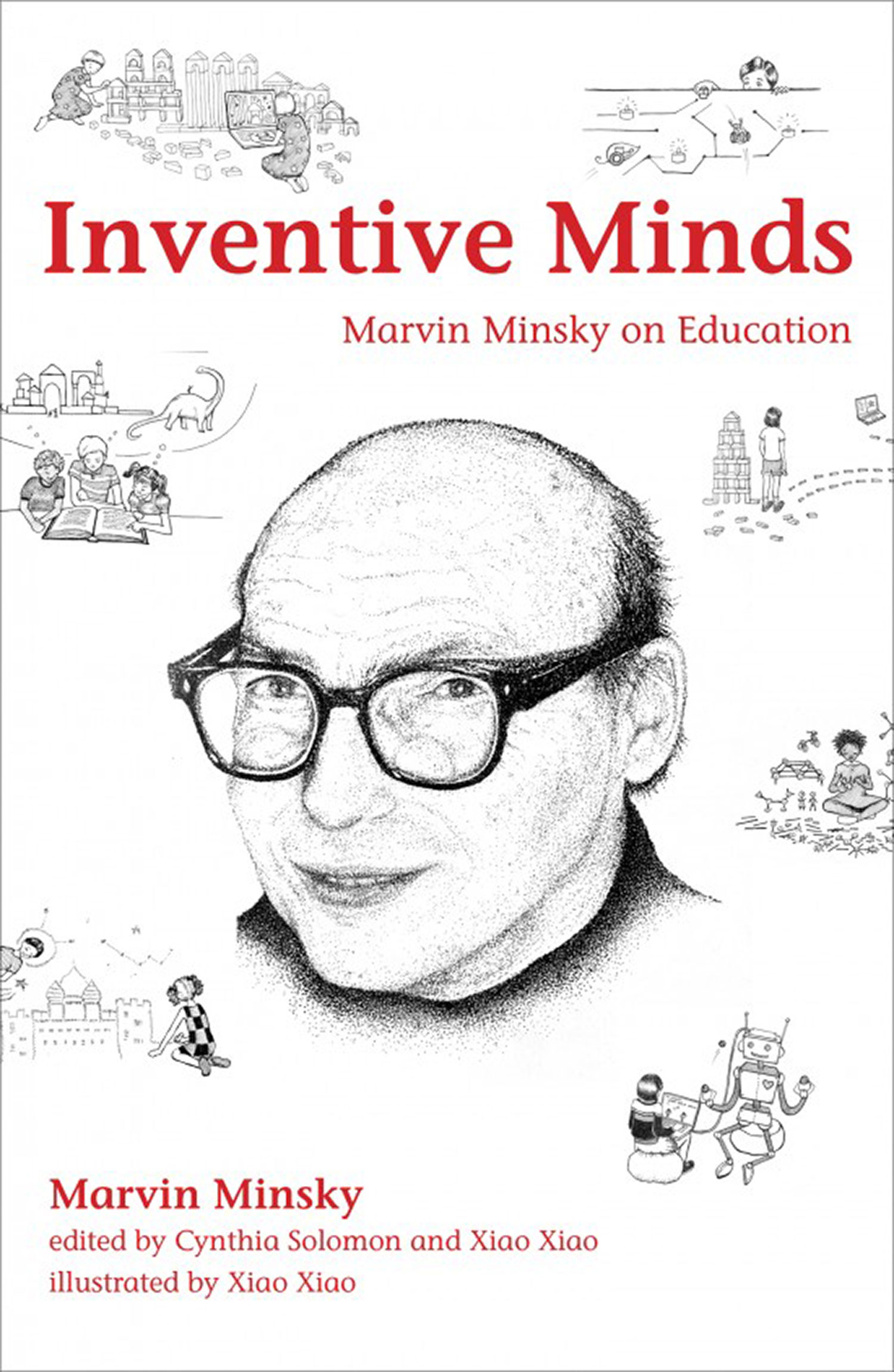Minsky’s thoughts on thinking

Marvin Minsky is famous for his many pioneering contributions to the field of artificial intelligence—including founding MIT’s first AI Lab. But Minsky, who died in 2016, also had a broader interest in human learning and cognition.
His thoughts on that topic are collected in Inventive Minds: Marvin Minsky on Education (MIT Press, 2018), which comprises six essays, many published here for the first time. Several of them sprang from a collaboration with the Media Lab’s Seymour Papert through the One Laptop Per Child project. Accompanied by commentary from former colleagues and students, the essays provide a unique glimpse into Minsky’s mind.
“Marvin left this city of ideas behind,” says Xiao Xiao ’09, SM ’11, PhD ’16, who co-edited the book with Cynthia Solomon and also illustrated it. “We’re just adding a society around it.” In his essays, Minsky “challenges a lot of norms,” she says, and addresses what she calls some “really misguided ideas” about learning and education in American society.
Xiao bonded with Minsky over a shared interest in music when she was a graduate student at the Media Lab. When she gave a demo of a prototype of her music-based project called MirrorFugue at a Media Lab event, he wanted to try it out himself. Minsky, she notes wryly, was what his wife called a “piano detective.” If there was a piano in a building, he would invariably find it.
His search to understand intelligence led him to think of people as machines—which Xiao says he viewed as a good thing. In one essay, by imagining human thought as “modules,” he envisions people becoming more in touch with their internal processes. Instead of thinking, “I want a piece of cake,” people could think, “One of my modules wants a piece of cake,” thus leaving room for other modules to disagree (perhaps because you already ate a piece of cake and don’t really need another).
Minsky believed that helping children (and adults) gain greater control over their mental processes gives them tools for “constructing better views of themselves,” as he put it, and improves their ability to learn. Reading his essays, Xiao says, she came across ideas she would “think about for days.”
Because of Minsky, Xiao thinks of learning as “building a structure in your mind,” noting that the more you do it, the easier it gets. Something you’ve learned in one place may form the foundation for understanding something else. “Learning how to learn is the most important skill,” she says, echoing one of Minsky’s lessons. “It’s impossible for somebody to learn one thing and only rely on that for the rest of their lives. We always need to be learning.”
Inventive Minds: Marvin Minsky on Education
By Marvin Minsky
Edited by Cynthia Solomon and Xiao Xiao ’09, SM ’11, PhD ’16
MIT Press, 2018, $15.95
Recent books from the MIT community
Carbon Capture
By Howard J. Herzog ’74, SM ’75, CHE ’80, senior research engineer in the MIT Energy Initiative
MIT Press, 2018, $15.95
The Unsolid South: Mass Politics and National Representation in a One-Party Enclave
By Devin Caughey, associate professor of political science
Princeton University Press, 2018, $35
Resonant Games: Design Principles for Learning Games That Connect Hearts, Minds, and the Everyday
By Eric Klopfer, Jason Haas, SM ’13, Scot Osterweil, and Louisa Rosenheck
MIT Press, 2018, $40
Rethinking America’s Highways: A 21st-Century Vision for Better Infrastructure
By Robert W. Poole Jr. ’66, SM ’67
University of Chicago Press, 2018, $30
Supernova Explosions
By Craig Wheeler ’65 and David Branch
Springer, 2017, $139
The Gift of Global Talent: How Migration Shapes Business, Economy & Society
By William R. Kerr, PhD ’05
Stanford University Press, 2018, $27.95
Send book news to MIT News
MITNews@technologyreview.com or
1 Main Street, 13th Floor Cambridge, MA 02142
Keep Reading
Most Popular
Large language models can do jaw-dropping things. But nobody knows exactly why.
And that's a problem. Figuring it out is one of the biggest scientific puzzles of our time and a crucial step towards controlling more powerful future models.
The problem with plug-in hybrids? Their drivers.
Plug-in hybrids are often sold as a transition to EVs, but new data from Europe shows we’re still underestimating the emissions they produce.
Google DeepMind’s new generative model makes Super Mario–like games from scratch
Genie learns how to control games by watching hours and hours of video. It could help train next-gen robots too.
How scientists traced a mysterious covid case back to six toilets
When wastewater surveillance turns into a hunt for a single infected individual, the ethics get tricky.
Stay connected
Get the latest updates from
MIT Technology Review
Discover special offers, top stories, upcoming events, and more.